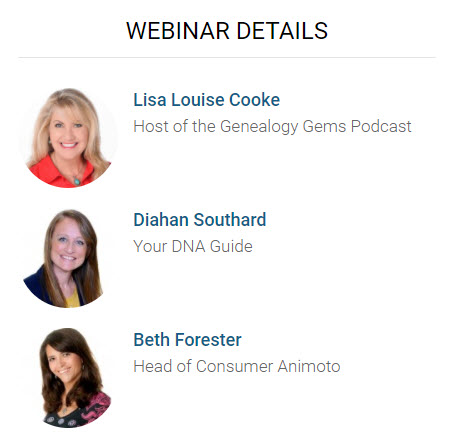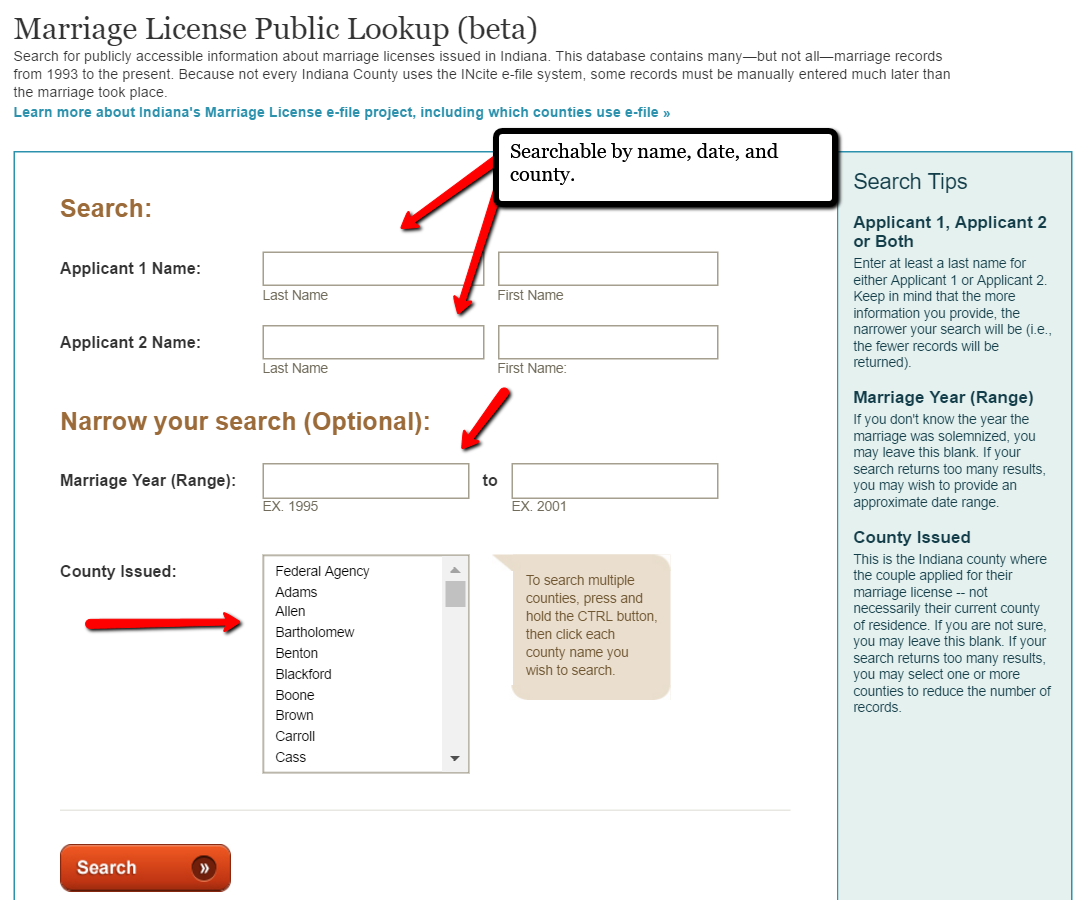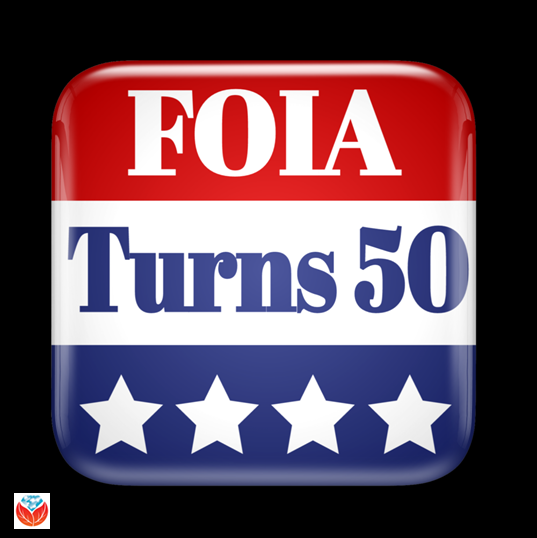Free Genealogy Webinar Class: Reveal Your Unique Story through DNA, Family History, & Video
Reveal more about your family’s unique story through DNA and genealogy!
 What You Will Learn in this Genealogy Webinar Video:
What You Will Learn in this Genealogy Webinar Video:
Your DNA Guide will get you started using DNA
There are more options, and possible outcomes, than you might think! Diahan will walk you through the choices.
Lisa Louise Cooke will provide strategies for filling in the gaps in your family’s story
Lisa will show you online tools that go well beyond names and dates. Then we’ll expand your story in unexpected ways by finding DNA connections.
Lisa & Beth Forester will show you how to share the story you’ve uncovered through video
You’ll discover how easy it is to tell your story like a pro!
Watch the Free Genealogy Webinar Video Below:
Genealogy Societies and Libraries:
You have our permission to show this free video class to your genealogy society or library group and you are welcome to advertise the presentation to your local media outlets, newsletter, social media, etc. Attribution Requirements: Include the text “This video is presented by Lisa Louise Cooke and Diahan Southard and sponsored by Animoto. Learn more at https://test.lisalouisecooke.com/webinar/” This attribution must be included in all promotions and announcements about the presentation. Please also share with your audience that we have several companion resources:
- The Genealogist’s Google Toolbox, 2nd edition
- DNA Quick Reference Guides in print or digital download
- Genealogy Gems Premium Membership
- Free weekly e-newsletter
If you’re interested in showing more video classes to your group in the future, check out our Genealogy Gems for Societies package! It is a licensing subscription service just for genealogical societies and groups such as libraries. The package provides you with a 1-year license to show one video class per event or meeting (click here for current video class catalog) and includes printable handouts. Learn more and purchase the 1-year Genealogy Gems for Societies package here.
For any questions about attribution requirements or the Genealogy Gems for Societies package, please email us at service@genealogygems.com.
Beginning Irish Genealogy Tips
Here are 3 essential tips for beginning Irish genealogy from Brian Donovan, Head of Irish Data and Development at Findmypast. Plus we’ll highlight Findmypast’s enormous collection of Irish records. It’s March now, and time to start celebrating all...How to Find Recent Genealogy Records That Are Not Online Yet

Records that have been created recently are difficult to find and access. Some privacy laws protect, and hinder, our being able to find more recent birth, marriage, and death records we need. Here are some tips for finding these and other genealogy records not yet online.
Recently, Tom in Olympia, Washington wrote us with a question about how to find recent genealogy records that are not online yet.
“My wife’s mother was adopted in 1925. We have found her biological mother’s name and through Ancestry.com, I’ve found several bits of information about her from census records. She also was a crew member on three steamships in the 1930s. On two of the ship manifests, her U.S. passport numbers are listed. Do you know any search options for finding information from passports in the 1930s?”
Maybe you have had a similar question. We hope our answer helps everyone more easily find genealogical records that are not online yet.
Obtaining Recent Passport Application Records
Tom will be interested in obtaining a passport application record which may hold more information about his targeted ancestor. As Tom already discovered, U.S. passport records are online at Ancestry and FamilySearch, but only those records prior to 1925.
My original hope was that the National Archives Records Administration would have had the passport application records for the 1930s. I googled passport applications National Archives, and the first search result took me to an excellent article. I learned the U.S. State Department has passport applications on microfilm between the years and dates of 1795 to 1905 and January 2, 1906 – March 31, 1925. Sadly, these were not the years Tom was looking for.
To find information about passport applications in the 1930s, I needed to go another route. I opened a new window and googled U.S. State Department passport applications request copy. The first search result took me right to the page I needed. The Passport Services maintain the U.S. passport records from 1925 to the present. These records are protected by the Privacy Act of 1974.
Passport records in this time frame for a third-party person are processed under the Freedom of Information Act. These records need to ordered by mail. Tom can make a request in writing and send that request to:
U.S. Department of State
Office of Law Enforcement Liaison
FOIA Officer
44132 Mercure Cir
P.O. Box 1227
Sterling, VA 20166
I suggested he mention his desire for the information is for genealogical purposes and what his relationship is to the person in question.
Using the Same Strategy for Other Recent Genealogy Records
Remember, this same kind of strategy applies to other genealogical records you might be looking for that were created recently. You can use Google searches and follow-up phone to find out where more recent records are and the access policies.
As an example, a recent Indiana marriage license index can be searched and viewed online for free at the Public Access records website for the state. I found this little goody by googling Indiana marriage records.

All of us at Genealogy Gems adore having the opportunity to find and share solutions like this one for overcoming the problem of locating recent genealogy records that aren’t online. If you haven’t done so already, sign-up for our weekly newsletter for more tips and tricks. Oh, and write to us anytime with your genealogy questions! We love to hear from you!
More Gems on Recent Genealogy Records

Other recent genealogy records in the U.S. are also available via the provisions of the Freedom of Information Act (FOIA). Click here to read about them! They include post-World War II draft registrations, immigration and naturalization documents and Social Security applications (SS-5).




